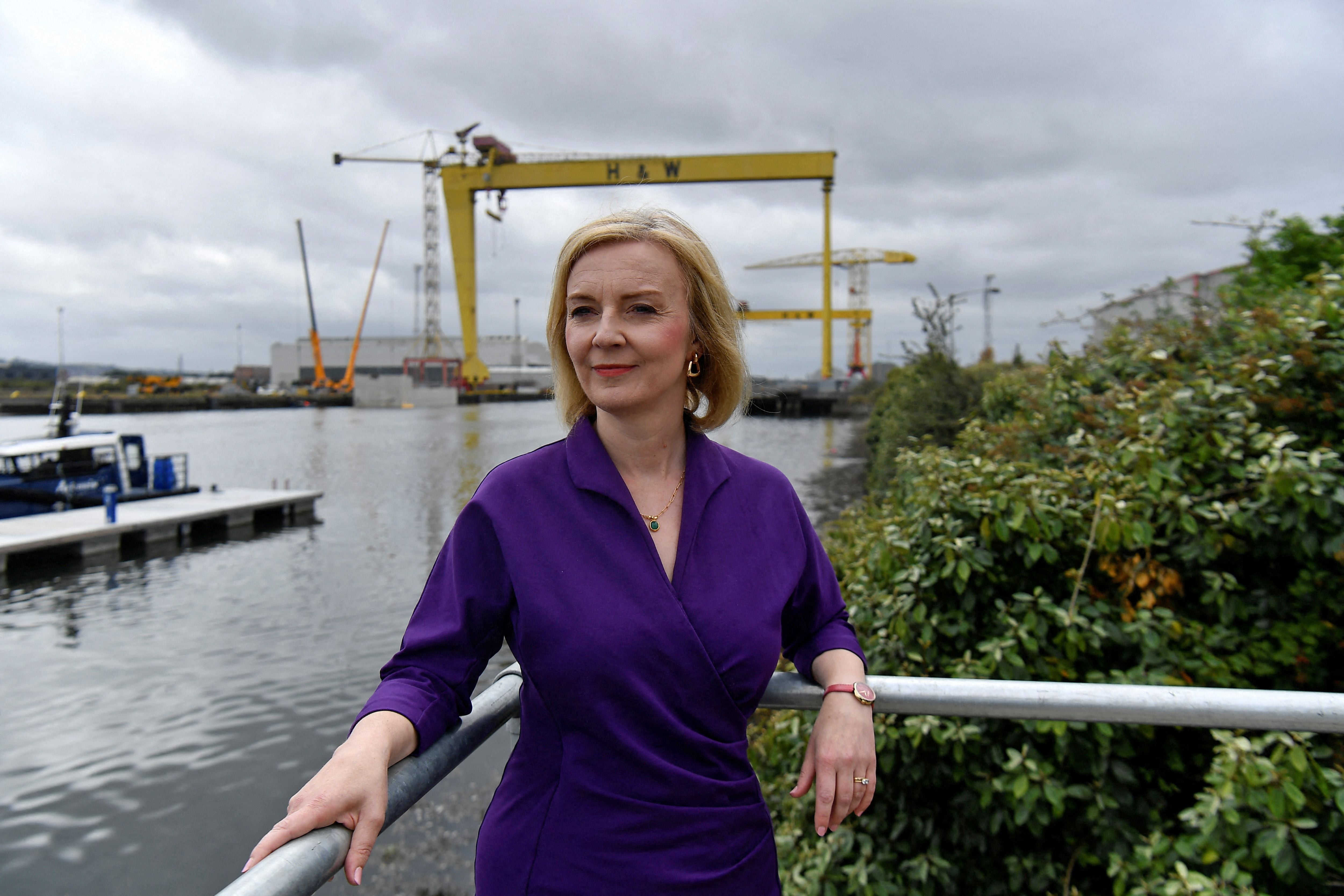Liz Truss’s boosterish case for tax cuts doesn’t stand up to scrutiny
Editorial: Truss wants to extend her economic dictatorship and introduce a wide-ranging emergency Budget unaccompanied by any input or analysis by the Office for Budget Responsibility

In advanced democratic societies, the tilt to authoritarianism rarely happens overnight in some military coup d’etat with tanks on the streets and opposition politicians in jail. Instead, it proceeds by stealth, baby step by baby step, law by law, order by order.
So it was, most frighteningly, during Donald Trump’s erratic time in the White House; and so it has also been during the past few years of Conservative government, with a marked acceleration in pace since Brexit, with parliament, monarchy, broadcasters, the law courts, the civil service, teachers, universities and internationally guaranteed human rights coming under sustained attack by “the people’s government”, as the Johnson administration once styled itself.
The Office for Budget Responsibility (OBR), which has built up a strong reputation for independence, is the latest institution to be sidelined for sordid political purposes. The OBR was created a decade ago by George Osborne to try to keep governments honest, and it now represents an impediment to Liz Truss’s reckless dogmatic tax-cutting agenda. It will thus be ignored when the time comes for her emergency Budget. As Michael Gove has suggested, nothing will be allowed to stop Ms Truss from taking the nation away with her on her long-awaited holiday from economic reality.
The baleful trend away from freedom and democratic rights, therefore, looks set to continue under Ms Truss, who can hardly see a television camera or a plaintive party activist without promising to be rid of another guard rail. She has turned her attention during the leadership campaign to extending No 10’s central control of economic policy, which translates as a move to an economic policy based purely on Ms Truss’s gut instincts and aversion to expert advice.
She wishes to revive Dominic Cummings’s old plan to concentrate economic policy-making and subjugate the Treasury and its supposed “orthodoxy” to her reckless dash for growth through unfunded tax cuts, spending increases on defence and other pet projects. Although she has shelved her previous vague policy of splitting the Treasury into an economics ministry and a public finance ministry, it remains a disturbing idea, placing unprecedented economic power at the disposal of the prime minister at the expense of the chancellor of the exchequer. (Ironically, it was Rishi Sunak who was appointed by Boris Johnson to carry out just such a mission, before it was quietly forgotten when Mr Cummings left government.)
Ms Truss has also openly questioned the Bank of England’s operation, and her putative chancellor, Kwasi Kwarteng, has queried its competence. Her allies in the press have called for the blameless governor, Andrew Bailey, to be sacked. Now Ms Truss wants to extend her economic dictatorship and introduce a wide-ranging emergency Budget unaccompanied by any input or analysis by the OBR. Ostensibly this is because the OBR would take too long to complete its report on the Budget measures, but this seems wide of the mark.
To keep up to speed with all the latest opinions and comment, sign up to our free weekly Voices Dispatches newsletter by clicking here
As the caretaker chancellor, Nadhim Zahawi has admitted, the Treasury is working on a variety of options to present to the new government, and there is no reason why the OBR shouldn’t undertake parallel preparatory work. At the very least, the OBR could produce a summary verdict on what we already know is likely to form the basis of the emergency Budget – reversal of the increase in national insurance, reductions in VAT and green levies and on fuel duty, plus an indicated ramping up of defence spending and modest targeted assistance on energy bills.
What seems painfully clear is that Ms Truss and Mr Kwarteng would much rather they weren’t troubled by an OBR report contradicting their case that tax cuts will boost growth, be self-financing, avoid recession, and won’t stoke inflation. No economic forecaster takes such boosterism seriously, and the Truss dash for growth looks doomed to disaster.
She seems to think that the boom can be sustained and the eventual crash can be delayed long enough to get her past the next general election, to be held at a time of her own choosing. That sort of calculation and cynical pre-election boom was precisely what the Cameron-Clegg coalition government’s OBR and Fixed-term Parliament Act, and what the Blair government’s Bank of England Act in 1998, were all designed to prevent. It looks very much like Liz is going for broke. Boom and bust is back, with a vengeance.



Join our commenting forum
Join thought-provoking conversations, follow other Independent readers and see their replies
Comments